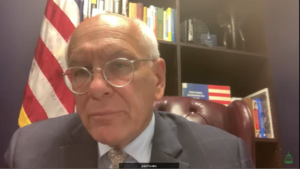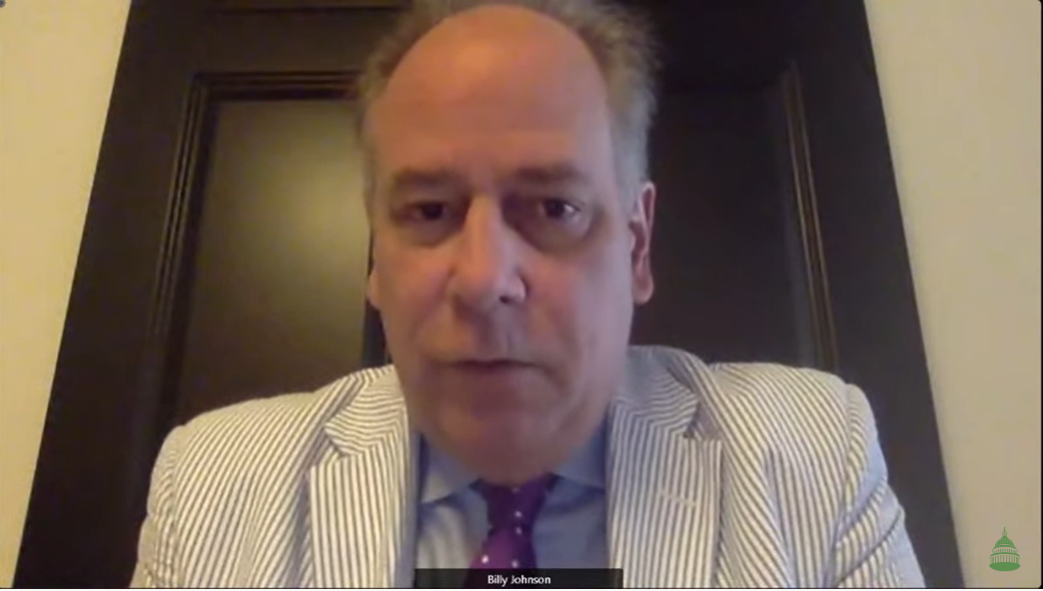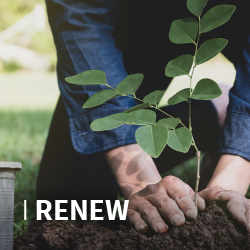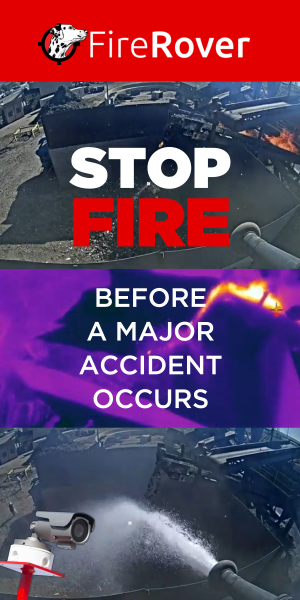On Thursday June 30, ISRI Chief Lobbyist Billy Johnson delivered a simple yet powerful message before the House Subcommittee on Environment and Climate Change: The U.S. recycling system isn’t broken. While residential recycling, the sector most people see, has its challenges, the industrial side of recycling runs like clockwork, he said.
“About 80% of the recycling industry comes from commercial and industrial materials that tend to be cleaner,” Johnson says. “The other 20% comes from the residential and municipal side of recycling. It does have problems and challenges, but it’s not broken.”
 Johnson’s testimony came during the “No Time to Waste: Solutions for America’s Broken Recycling System” session overseen by subcommittee Chair Paul Tonko, D-N.Y. Johnson was among six witnesses called to testify on four House bills: H.R. 8509, the Recycling and Composting Accountability Act (RCAA); H.R. 8183, the Recycling Infrastructure and Accessibility Act (RIAA); H.R. 1512, the Climate Leadership and Environmental Action for our Nation’s (CLEAN) Future Act; and H.R. 2238, the Break Free from Plastic Pollution Act. Each bill addresses a different area of the nation’s recycling infrastructure:
Johnson’s testimony came during the “No Time to Waste: Solutions for America’s Broken Recycling System” session overseen by subcommittee Chair Paul Tonko, D-N.Y. Johnson was among six witnesses called to testify on four House bills: H.R. 8509, the Recycling and Composting Accountability Act (RCAA); H.R. 8183, the Recycling Infrastructure and Accessibility Act (RIAA); H.R. 1512, the Climate Leadership and Environmental Action for our Nation’s (CLEAN) Future Act; and H.R. 2238, the Break Free from Plastic Pollution Act. Each bill addresses a different area of the nation’s recycling infrastructure:
- RCAA would direct the EPA to collect recycling and composting data from materials recovery facilities (MRFs) and curbside collection programs in all 50 states. It also includes ISRI’s definitions for “recycling,” “recyclable,” and “MRF” for the first time in U.S. law.
- RIAA would establish a pilot grant program to improve recycling accessibility.
- The CLEAN Future Act would build a clean and prosperous future by addressing the climate crisis, protecting the health and welfare of all Americans, and putting the nation on the path to a net-zero greenhouse gas economy by 2050.
- The Break Free from Plastics Pollution Act would amend the Solid Waste Disposal Act to reduce the production and use of certain single-use plastic products and packaging; to improve the responsibility of producers in the design, collection, reuse, recycling, and disposal of their consumer products and packaging; and to prevent pollution from consumer products and packaging from entering into animal and human food chains and waterways.
Principal Players
John was joined as a subcommittee witness by David Allaway, senior policy analyst at the Oregon Department of Environmental Quality; Lynn Hoffman, Co-President of Eureka Recycling and national coordinator of the Alliance of Mission-Based Recyclers; Stephanie Erwin, director of circular economy at the American Sustainable Business Network; Yvette Arellano, founder and executive director of Fenceline Watch; and Matt Seaholm, CEO of the Plastics Industry Association.
In his opening remarks, Frank Pallone, D-N.J., chair of the House Energy and Commerce Committee, noted that recycling is a critical tool to help reduce pollution in the U.S., boost the economy, and strengthen domestic supply chains. “Our recycling system is underfunded,” he says. “Municipalities across the nation struggle to manage their recycling programs, forcing scale backs or cancelling recycling pickups. Without adequate infrastructure to recycle the materials the domestic manufacturers won’t be able to use the materials for new products.”
Pallone added the Bipartisan Infrastructure Law is “a critical first step to addressing recycling infrastructure challenges.” The 2021 law includes the $75 million Recycling Enhancements to Collection and Yield through Consumer Learning and Education (RECYCLE) Act, $150 million for critical mineral and battery recycling, and $100 million for the Environmental Protection Agency’s pollution-prevention program.
What Makes Recycling Successful
Johnson demonstrated to the subcommittee that recycling is essential to help combat climate change, conserve natural resources, and save energy. “Recycling employs more than 164,000 people in every congressional district in the U.S. and contributes over $117 billion dollars in economic activities a year; these numbers tell the story of a vibrant industry,” he says.
Johnson noted it’s important for the public to recognize what successful recycling looks like. “It requires market demand,” he says. “If there’s no end market, then these materials won’t be recycled and used again in manufacturing, regardless of the volume that gets collected. Collection without market consumption isn’t recycling.”
Successful recycling also requires minimal contamination. Recyclable materials are sold by specification grade, with their value and marketability directly related to quality. Johnson emphasized the importance of designing products with recycling in mind. “From electronics and consumer packaging to vehicles and other products, it’s imperative to design products and packaging for recycling,” he says.
Unique Challenges, Unique Solutions
Most recyclable materials come from industrial or commercial sources. These materials typically move through recycling infrastructure without any problems and get recycled into clean, high-quality, commodity-grade products used throughout the world as sustainable substitutes for virgin materials. “Residential recycling is saddled with an ever-changing mix of materials on the supply side that have high contamination and flow into the recycling stream whether there’s a market for them or not,” Johnson says. As a complex system residential recycling demands a unique approach and unique solutions.
Recyclers are aware of the public’s concerns about the industry, Johnson says, and they’re invested in finding solutions that promote sustainability and create a circular economy. “At ISRI, we believe that all stakeholders must come together to develop a common understanding of the weaknesses affecting the residential stream,” he says. “And then work together to develop the menu of solutions that need to be put in place.”
During questions from the subcommittee, Johnson remarked people already want to recycle; RCAA would help grow awareness of recycling’s essential nature. “The bill is a wonderful start to making recycling easier for people to do,” he says. “Some areas of the country have great recycling programs, but those programs aren’t everywhere. Getting recycling to underserved communities is terribly important.”
Featured image caption: ISRI’s Chief Lobbyist Billy Johnson. Body image caption: Congressman Paul Tonko D-N.Y., chair of the Subcommittee on Environment and Climate Change oversaw the hearing “No Time to Waste: Solutions for America’s Broken Recycling System.”
Additional Resources













